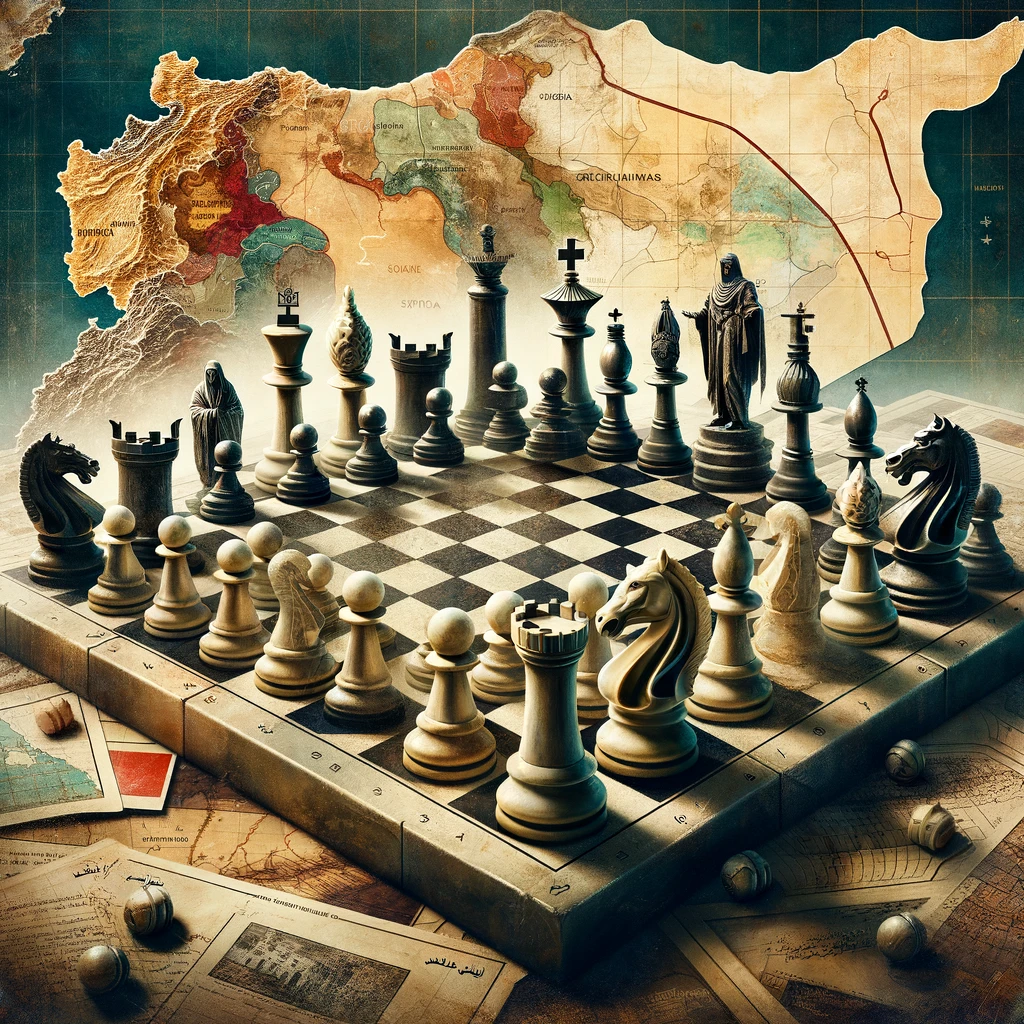Has Putin checkmated the West in Syria and the Middle East?
Written 4 October 2015

Vladimir Putin is no Bobby Fischer, the subject of the recent film Pawn Sacrifice. Nor is he a Garry Kasparov, a former Russian chess grandmaster and noted Putin critic. If he were to dedicate his career to chess, he may have an elo equivalent to 2000, a respectable number but not near a grandmaster’s skill. Yet, he is not playing against grandmasters. His opponents, namely Barack Obama, may have elos less than 1500, a measly figure reserved for beginner chess players. (A well-matured absolute beginner may have an elo of 1000.) While Putin may look like a grandmaster as he plays against mediocre players, he may not stand up too highly against the “grandmasters” of the game of geostrategy such as Justinian I of Byzantium or Otto von Bismarck of Prussia — later Germany.
The near-complete lack of strategic vision in the West is Putin’s greatest ally, allowing him to make brilliant moves with almost no resistance. All the plays he has made were not the result of the West being outmaneuvered — indeed, it is much worse. Putin simply opened the door and walked in after it was left unlocked. The fact that the West left Syria to its demise after Russian opposition opened up the door and Putin no longer took Obama and his allies seriously. Furthermore, America’s clear inability to defeat ISIL convinced him that an opportunity was now available.
Simply put, by launching a coalition against ISIL, Putin has put into works the establishment of a Russia-Shia axis. Because the main forces fighting against ISIL are Shia, and because the organization is reviled by the Shia — not to mention that the US has been regarded as ineffective in combating this sort of terrorism — by defeating ISIL, Putin would become immensely popular among the group. The fact that he is seen as an antagonist to the United States will only further help Putin. As such, Putin may gain a significant sphere of influence in Syria, Iraq, Iran, and even in Yemen, Lebanon — not to mention the millions of Shia living in the Sunni dominated countries of the Gulf Coast.
The issue here is that the majority of the Middle East’s oil reserves tend to be geographically concentrated in Shia-majority regions, even in Saudi Arabia. If Putin is able to successfully create a Russia-Shia axis, he would have effective control over the majority of the world’s oil. What territories are not available to him from Saudi Arabia could be used against them. Even in Saudi Arabia, oil tends to be concentrated in Shia areas. Considering that this region has been restive before — and also considering that the Shia are a heavily discriminated and discontented group within the country — this would be an easy target. A fomentation of revolt could cause an oil price rise which would help himself and his allies.
Although the majority of America’s oil imports come from the Americas, a conflict in the Gulf could cause significant supply problems in America and hurt America’s economy (although it would certainly help oil producers). Considering that Putin already shares a large stake in Europe’s energy supply, having influence in the Gulf would give him another weapon to use against the West and gain significant leverage in global politics. This, by the way, was the main fear behind the so-called Carter Doctrine.
The main problem Russia will have if it pursues this strategy is Iraq. Iraq is still largely dependent on the United States for military supplies and security (to a smaller extent with the latter), but this could easily change. Asking the Shia government to side against Russia would be tantamount to siding with the Sunnis (and implicitly, ISIL). Furthermore, Russian military supplies could replace Iraq’s reliance on American ones. The United States must understand that Iraq will try to leverage relations between Russia and America in order to gain maximum benefits from both — in a strategy similar to the one followed by Egypt’s Gamel Abdel Nasser. It seems that the US playing this game as well — and thus keeping Iraq neutral — may be the best chance we have of stopping Putin in the Middle East.
It should also be emphasized that Putin could find himself in a serious quagmire in the Middle East if he stays for too long. This will be especially true if ISIL is not defeated and the war continues for some time. In this scenario, Putin would be more likely to retreat and throw Assad under the bus, seriously damaging his international reputation. Furthermore, there is a significant Sunni minority in Russia, many of whom went to fight for ISIL. Putin faces significant risks from his recent entanglement, but the reason he went through with the offensive is likely because he sees the West as too ineffective to mount a serious response. He also likely thinks that the West would be forced to side with him in defeating ISIL, simply because of the bad PR that will result if this were not to occur. In the end, it is the West’s responsibility to show Putin that he is not the strategic mastermind he thinks he is.